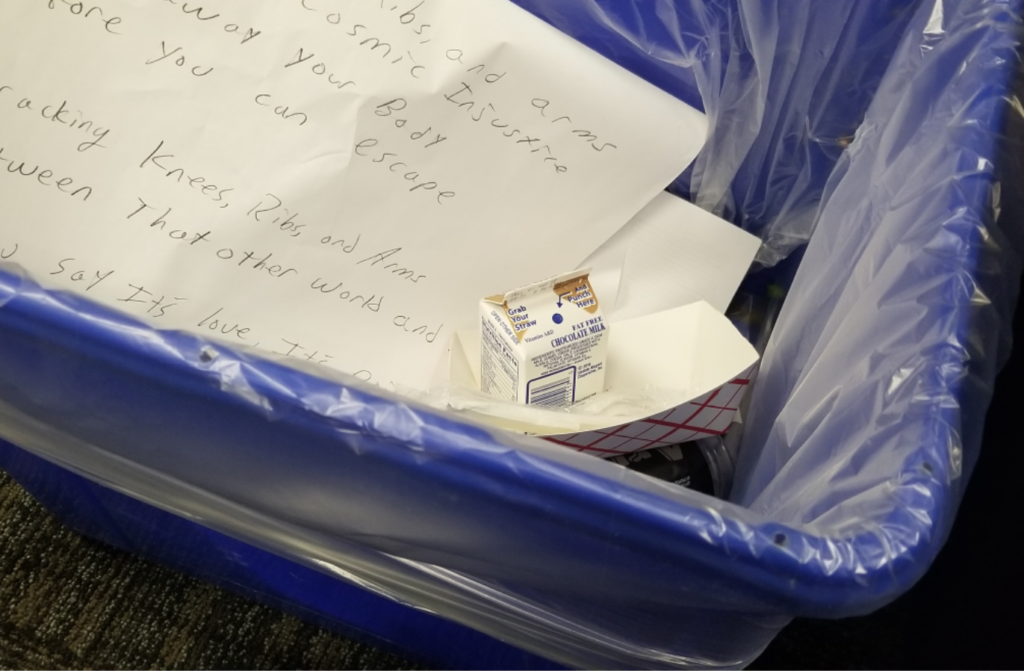
By Daniel Krieger
Since China stopped importing recyclable materials from foreign countries in 2017, the US and the world has been sent reeling. China used to cover a large portion of the world’s plastic recycling – about 45% of the total since 1992 – but now refuses to take in so much plastic and recyclables from the world.
Because of what China has done, it is estimated that 111 million metric tons of plastic will be displaced by 2030 – either ending up in landfills or incinerated.
This has negatively impacted many areas, including Amherst. It used to be that plastics numbers one through seven were okay to go in the recycling bin. But now, for towns like Amherst, plastics three through seven are no longer economically viable and have been stricken from the acceptable list of things to place in the recycling bin.
Other places in the country have had to even charge people for a permit to recycle and require them to transport the waste to collection centers. As a result, many products that could be recycled are instead ending up in landfills or being stored at recyclers until they can find a buyer.
Many have noticed the new signs on the recycling bins in the Commons. They say that the only things students can recycle are paper, plastic bottles, and cans. This is true at home as well as in school. People in Amherst should only recycle paper, paper products, plastics with 1 or 2 on them, tin or steel cans, and clear glass.
All items should be fully cleaned before being placed in the recycling bin. Things such as greasy pizza boxes or other food wastes can contaminate the batch of recycling materials and make them not viable for recycling or even damage the machines at the recyclers.
The Town of Amherst and Modern Disposal, the private company that does Amherst’s recycling, have given the acronym CLEAN to remind the people of Amherst what to recycle and what not to.
C – Clean and rinse out all plastic containers
L – Leave out any colored glass
E – Empty cardboard boxes of all plastic wrap, film, and styrofoam
A – Anything that you are unsure about should not be recycled
N – No plastic bags or plastic film from packaging of any kind
Letter “A” is what is concerning to many environmentalists.
East has been making some improvements to the recycling system. The new principal, Mr. Swatland, highly values the importance of staying green. The athletic complex will finally be getting recycling bins, something that has been long desired by both Earthwise and Project Green, two clubs focused on the environment.
Earthwise is the club that is responsible for taking care of the recycling bins at East. With Mrs. Bean and Mrs. Spitznogle as their dual advisors, the members collect all the recycling from the building every week. They have had to change how they do things now and will not ignore bins that have non-recyclable waste in them.
In an email, Mrs. Spitznogle said that it is not their club members’ “responsibility to sort through the bin. If it contains items other than paper or drink bottles they [the club members] will leave the bin.”
She asked that teachers try to clean out their bins prior, saying that recycling bins have held non recyclables such as “used Kleenex, dirty food containers, milk cartons, wood, candy wrappers, apple cores.”
This is very problematic because if any of these or other items end up in the load, Amherst will reject the entire load and it will end up in a landfill. This is why it is imperative that students follow the guidelines.
